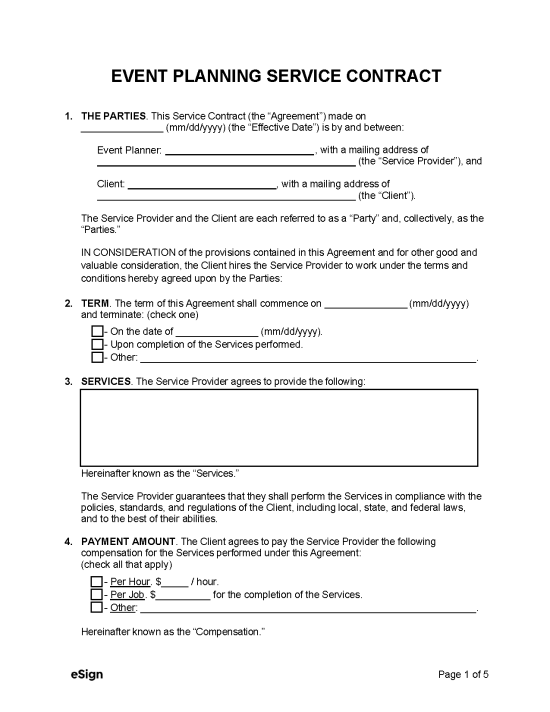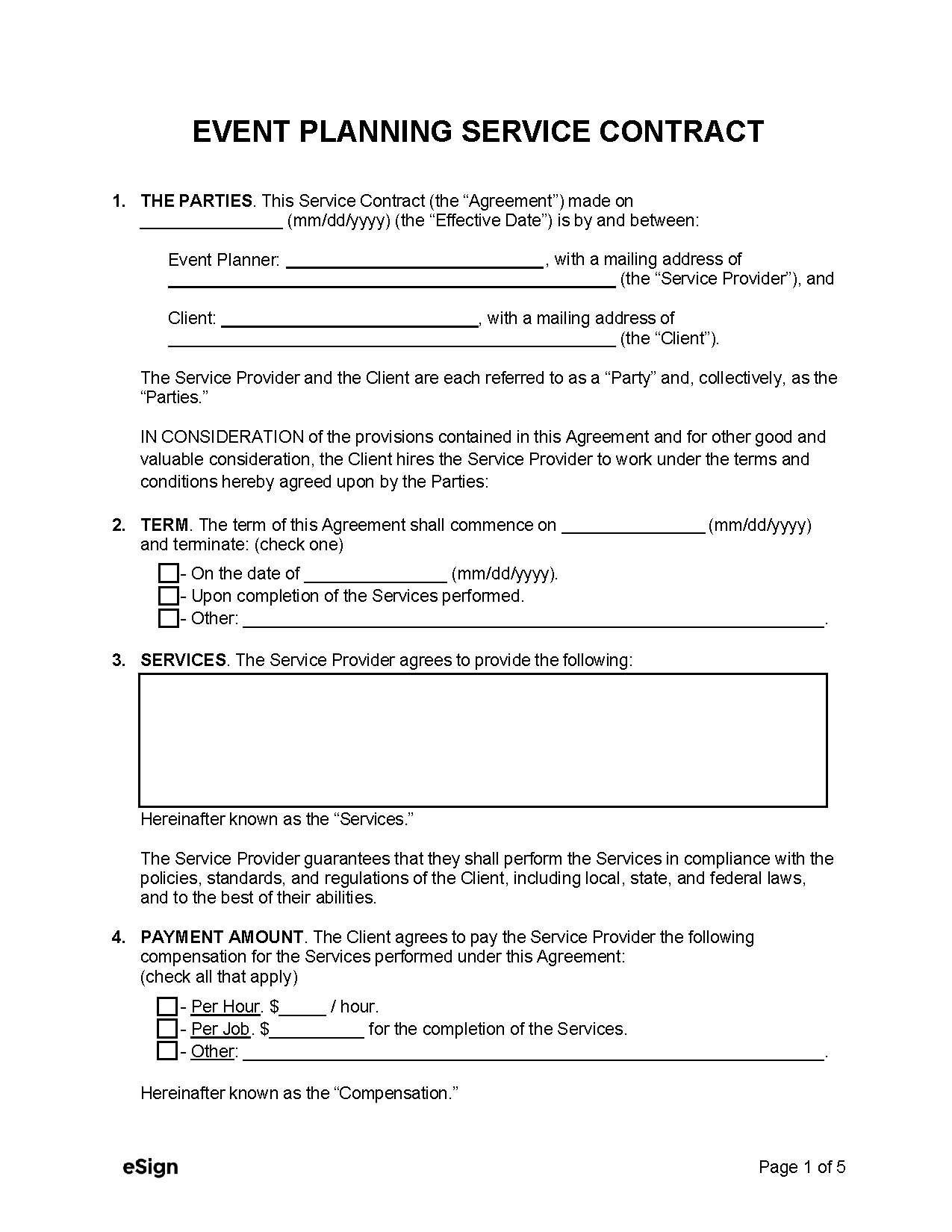How to Write the Contract
An event planning contract should contain the following terms:
- Agreement length – The start and end date of the agreement.
- Services – The scope of the event planner’s responsibilities (program scheduling, hiring decorators, booking entertainment, etc.).
- Payment terms – The event planner’s compensation for their services and the payment’s due date.
- Retainer – An upfront fee that secures the event planner’s services.
- Confidentiality – Ensures that any sensitive or proprietary information is not disclosed to outside parties.
- Independent contractor status – Establishes the event planner as a self-employed contractor.
- Signatures – The signatures of both parties and the signing date.
Event Planning Certification
Event planners are not required to hold certification to operate, though many institutions offer diplomas and degrees in fields such as event design, management, and planning. As organizing events can be a complex and demanding job, these types of programs offer knowledge and specialization to those seeking a career in event planning.
Sample
Download: PDF, Word (.docx), OpenDocument
EVENT PLANNING SERVICE CONTRACT
1. THE PARTIES. This Service Contract (the “Agreement”) made on [MM/DD/YYYY] (the “Effective Date”) is by and between [SERVICE PROVIDER NAME], with a mailing address of [SERVICE PROVIDER ADDRESS] (the “Service Provider”), and [CLIENT NAME], with a mailing address of [CLIENT ADDRESS] (the “Client”).
2. TERM. The term of this Agreement shall commence on [MM/DD/YYYY] and terminate on the date of [MM/DD/YYYY].
3. SERVICES. The Service Provider agrees to provide the following: [DESCRIBE SERVICES TO BE PERFORMED]. Hereinafter known as the “Services.”
4. PAYMENT AMOUNT. The Client agrees to pay the Service Provider $[RATE]/Hour for the Services.
5. PAYMENT METHOD. The Client shall pay the Compensation every week, beginning on [MM/DD/YYYY].
6. RETAINER. The Client is REQUIRED to pay a Retainer in the amount of $[RETAINER AMOUNT] to the Service Provider as an advance on future Services to be provided (the “Retainer”). The Retainer is Non-Refundable.
7. INDEPENDENT CONTRACTOR STATUS. The Service Provider, under the code of the Internal Revenue Service (IRS), is an independent contractor and neither the Service Provider or their employees or contract personnel are, or shall be deemed, the Client’s employees.
8. ADDITIONAL TERMS AND CONDITIONS. [ADD ADDITIONAL INSTRUCTIONS, TERMS, CONDITIONS].
IN WITNESS WHEREOF, the Parties hereto agree to the above terms and have caused this Agreement to be executed in their names.
Client’s Signature: _________________________ Date: _______________
Printed Name: _________________________
Service Provider’s Signature: _________________________ Date: _______________
Printed Name: _________________________

